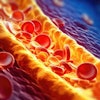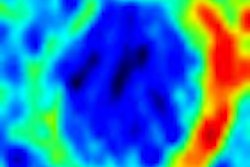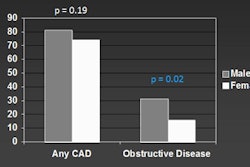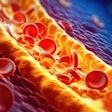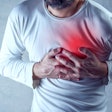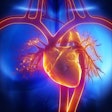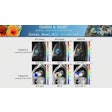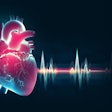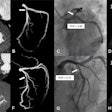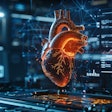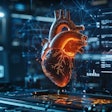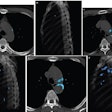Dear Cardiac Imaging Insider,
Statins improve survival even in patients with subtle subclinical atherosclerosis that a stress test wouldn't be expected to find, concludes an important new analysis of the 25,000-patient Coronary CT Angiography Evaluation For Clinical Outcomes (CONFIRM) registry. Aspirin regimens, unfortunately, didn't alter survival in any patient group, the investigators said.
In the cohort of more than 10,000 patients with so-called clinically insignificant lesions (< 50% luminal narrowing), coronary CT angiography was a far better predictor of death than traditional cardiac risk-assessment methods such as the National Cholesterol Education Program Adult Treatment Panel III or Framingham risk score.
For more revelations of the kind you can't get from the little studies, check out this issue's Insider Exclusive, brought to you as a subscriber before it's available on our general site.
Meanwhile, MRI is finding important changes in the vasculature of rescue workers who ventured into the toxic stew of Manhattan's World Trade Center site following the terrorist attacks of September 11, 2001. Dynamic contrast-enhanced MRI showed that neovascularization, a sign of carotid wall inflammation and early arterial plaque development, was more pronounced among workers who arrived on the scene earlier and stayed longer. Get the rest of the story by AuntMinnie.com contributing writer James Brice here.
As for ultrasound, word is that transthoracic echo can rule out paroxysmal atrial fibrillation as a cause of stroke or transient ischemic attack much more quickly than extended electrocardiogram monitoring. Get the rest of the story here.
Finally, a feature from the recent RSNA 2011 meeting in Chicago explores how imaging came to dominate atherosclerosis care. It wasn't always so, but thanks to advances in CT angiography and several other techniques, such as multiweighted MRI, MR with iron-oxide contrast, PET/MRI, and even nanotechnology, clinicians are attacking the problem of atherosclerosis morbidity from several imaging angles.
Perhaps best of all, we're guaranteeing delivery of your cardiac imaging news in time for the holidays -- right here in your Cardiac Imaging Digital Community.

